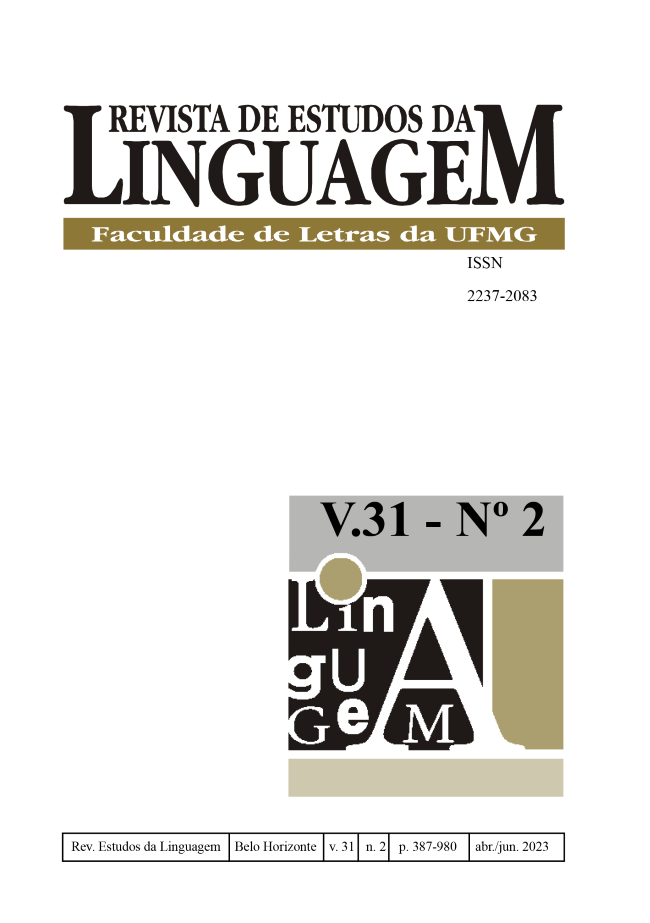Realization of feminine article before masculine anthroponym
a sociolinguistic analysis about feeling of inclusion of university students from Recife
DOI:
https://doi.org/10.17851/2237-2083.31.2.616-635Keywords:
linguistic attitude, article, anthroponym, gender, inclusionAbstract
Sociolinguistic research shows that Brazilian Portuguese presents two variants in the nominal phrase: (a) the realization of the definite article before anthroponyms (eg. O João) and (b) the non-realization of the definite article before anthroponyms (eg. João). The variation of these forms is related to the influence of the diatopic variable: in cities in the Northeast, the non-realization of the definite article before proper nouns is the most common strategy, contrary to what happens in cities in the South and Southeast (CALLOU; SILVA, 1997; VERÍSSIMO, 2021). Besides these two possibilities, there is another possibility that has been underinvestigated in which a feminine article is used before a masculine anthroponym (eg A João). The use of this variant is rising and is found in the speech of members of the LGBT+ community. Therefore, the main goal of this research is to investigate the feeling of inclusion of university students who live in Recife about the use of this variant. For this purpose, 60 speakers (30 students who belong to the LGBT+ community and 30 students who do not belong to this community) participated in language attitude surveys, with a 5 point Likert type scale. The results show that the community influences on emerging variant: LGBT+ group feels included using this variant, unlike the group that does not belong to this community.




 Esta obra está licenciada com uma Licença
Esta obra está licenciada com uma Licença 